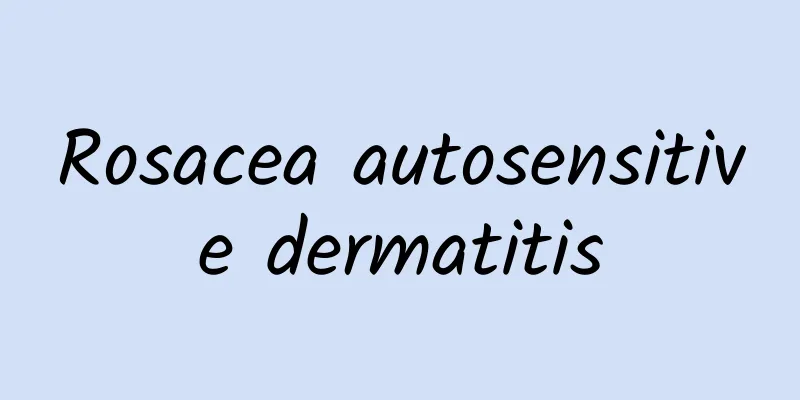The harm of long-term medication for hypertension

|
Hypertension is a relatively common chronic disease. It is generally difficult to completely cure this disease. If it is not treated promptly, it will cause great harm to the patient's cardiovascular and cerebrovascular health. More serious hypertension requires long-term medication treatment. These drugs generally have certain side effects and will have a certain impact on the health of the liver and kidneys. However, the side effects of the drugs are still much smaller than the harm of hypertension. The harm of long-term medication for hypertension 1. Any medicine has side effects, and almost all antihypertensive drugs put a certain amount of pressure on the human kidneys and liver. 2. However, national prescription drugs have been clinically proven many times, and the pressure that the drugs put on the liver and kidneys is within the body's tolerance range and can be self-regulated (unless you are stupid enough to take large amounts of them). 3. It is not recommended that you use the random antihypertensive drugs sold on the market. Although some of them are indeed effective, no one knows the damage to the liver and kidneys. There are also many people who suffer from kidney failure after taking antihypertensive drugs, all of which are caused by taking drugs indiscriminately. 4. Hypertension is not a big problem. The problem lies in the complications caused by long-term hypertension, which is a big problem. 5. Therefore, we need to weigh the pros and cons. Compared with the self-recoverable liver and kidney pressure caused by antihypertensive drugs, the control of hypertension complications is obviously the key point. 6. Therefore, people with high blood pressure should take medicine to control their blood pressure within the ideal range to avoid persistent high blood pressure causing continuous damage to organs and cardiovascular system.The side effects of the drug are minimal compared to the harm of high blood pressure The antihypertensive drugs currently used in clinical practice are generally divided into six categories: prils, sartans, dipines, diuretics, beta-blockers and alpha-blockers, among which the first five are first-line drugs. It is undeniable that any drug has side effects. For example, diuretics can cause hypokalemia, prils can cause dry cough, and short-acting dihydropyridines can cause gingival hyperplasia. These side effects are easily avoided or corrected, and are minimal compared to the cardiovascular, cerebral, and renal complications of hypertension. The newly launched antihypertensive drugs have controlled the side effects of the drugs to a minimum, and small-dose combination therapy is recommended clinically to increase efficacy and reduce side effects. As long as you choose good antihypertensive drugs and use them regularly according to the instructions, there will be no serious harm to your body even if you use them for life. Clinically, there are many people who take antihypertensive drugs throughout their lives and live healthily. Similarly, there are also many people who dare not take drugs for fear of side effects and thus develop complications of hypertension. |
<<: What are the side effects of tattoo anesthetics?
>>: What medicine to take for mild impotence
Recommend
Rheumatoid arthritis: early diagnosis and treatment are crucial
The early diagnosis method of rheumatoid arthriti...
Symptoms of rheumatoid arthritis
When it comes to the symptoms of rheumatism and r...
What are the effects of brewing lotus leaf, cassia seed and rose tea?
Lotus leaf, cassia seed and rose tea is a relativ...
How many weeks is it appropriate to do 4D color Doppler ultrasound
I believe that women who have been pregnant shoul...
How to treat children's tooth decay?
Many children suffer from tooth decay due to the ...
The role of acupuncture slimming patch
There are so many ways to lose weight, including ...
What to do if your baby has a rash
The condition of babies with rashes will be more ...
Why are my legs cold in summer?
Cold feet in the summer are quite common in our d...
How to make your face whiter
As the saying goes, a white complexion can hide t...
How to treat myocardial strain with traditional Chinese medicine
Myocardial strain is generally caused by excessiv...
Two months pregnant, no taste in mouth
A woman's diet will change more or less after...
What are the techniques for female breast massage?
If female friends massage their breasts regularly...
What is the incubation period of Chlamydia infection?
Mycoplasma and Chlamydia are both sexually transm...
What disease does ceruloplasmin test for?
In medical differential diagnosis, there is a tes...
How to get rid of pessimism
Everyone's psychological emotions are differe...









